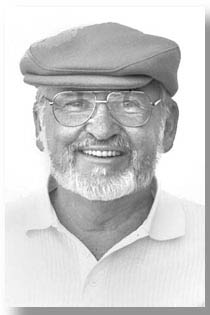There’s been a bit in the news lately about kidney transplants being done overseas. The point of interest is that poor third world people are selling one of their kidneys to people from richer countries. This is news because in this country payment for a kidney (from either a live or deceased donor) is prohibited.
This seems rational in that we want to make sure the poor aren’t exploited by the wealthy. But what is really the case?
No one in the U.S. can be compensated for donating a kidney to avoid the above possible exploitation. BUT, the doctors and the hospital where the donated kidney is removed from the donor are compensated for their part in the process.
The companies that specialize in transporting a donated kidney (or other organ) from the donor’s location to the recipient’s location are compensated for their part in the process.
The doctors and the hospital where the donated kidney is placed into the recipient are compensated for their part in the process.
Everyone except the donor (or the donor’s estate) gets paid. Think about it. If it wasn’t for the donor, none of the above players would be participating in a paying, for profit, procedure which they all benefit from. Why is this necessary.
I can understand the basic origin of the process, fear of exploitation of the poor by the wealthy. And the fairness of someone needing a kidney not being able to jump to the front of the line by paying for and having a purchased kidney available for their personal use.
What would I suggest? First, that the law prohibiting the payment for donated organs be replaced with an open procedure facilitating compensation for a donated kidney whether from a live or deceased donor.
The donor or the donor’s estate should be compensated at a cost equal to (several options) a percentage of the total money that changes hands in the process, the money paid to the surgical team implanting the kidney, or any other open process that can be regulated.
Over 6000 people a year die in this country while waiting for a donated kidney to become available. This process would encourage some survivors of a deceased person to donate a kidney. I would limit donated kidneys to those from deceased persons.
But some people would be willing to donate a kidney to a friend or relative if compensated for the risk and/or cost to themselves. In such cases, perhaps a donor needs to take off work for a month or two to recuperate. Even if there were no compensation, I think a living donor should receive a priority commitment for a future kidney replacement if his or her one remaining kidney were to fail.
The poor will always be at a disadvantage no matter how it’s arranged. We just saw Steve Jobs of Apple jump to the head of the line for a liver transplant because he could get from California to Tennessee within 8 hours on a private jet (there are some rules).
The wealthy in the world will always be able to fly to exotic locations to take advantage of another country’s rules. The poor here are stuck with our rules.
Why should 6000 people a year die in this country just so a few can be sure life is fair? Which it isn’t.
Wednesday, July 22, 2009
Subscribe to:
Post Comments (Atom)




No comments:
Post a Comment